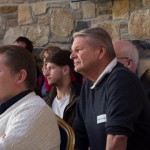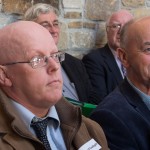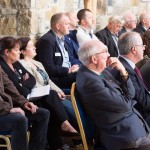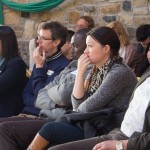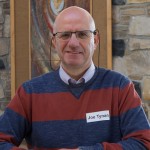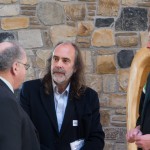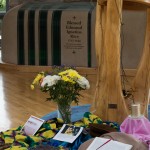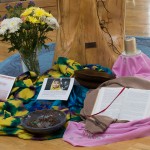

ERN Conference October 11th, 2013
Summary Report
John Waters was the keynote speaker. In his conference address he spoke of the need for all involved in education to keep in mind the transcendent dimension of the human person that underpins authentic education in the Catholic tradition. He drew attention to the ‘bunker mentality’ that so pervades contemporary society, where a collective disregard of the notion of transcendence is responsible for an impoverished view of life. This leads to forms of education that are little better than the ‘murder machine’ described by Pádraig Pearse in his essay on education.
In the sessions that followed there were presentations by:
- The Edmund Rice Camps
- The Cork Life Centre
- The Edmund Rice Network Leadership Group (ERNLG)
- The Open Doors Centre, Belfast
- The English Schools Immersion Programme
Key Points from the Discussions
We live in an age where we see a greater emphasis on community, in the use of the internet, social media and means of communication, but paradoxically, we also experience an absence of community. The deeper reasons for this were presented by John Waters in his presentation.
Today, the personal ‘I’ finds it difficult to acknowledge or become a ‘We’. Nonetheless, we are connected at a deep level. The ERN Conference Day is an expression of this connectedness and is a step on the way to deepening our sense of connection. Our sense of connection is deeper than we think and in many of the presentations we discerned the emergence among us of a genuine and authentic community facilitated by our common connection with the vision of Edmund Rice.
We have participated in our sessions in Mount Sion in a communal self-discovery. In the telling of our stories we experience who we truly are.
In the stories we heard from the presenters, many of them young people, we caught a glimpse of the deeper current of life that unites us all. We began to understand that we are genuinely a ‘vibrant community engaged in committed action’ (Session III, ERN Presentation).
We have been surprised and amazed to discover the extent and range of activities of the Edmund Rice Network. We have been challenged and impressed by the energy of the people who witness to the living reality of the Edmund Rice vision from a new generation to whom the torch for keeping this vision alive has now passed. This was particularly evident in the young people from the Edmund Rice Camps and the volunteers from the Cork Life Centre (Sessions I and II).
If we experience doubts about the reality of community in our world and if we feel, as one person put it, “a sense of being lost, a lack of community”, our experience during the conference gave us fresh hope that authentic community is possible. We have found among us people like us. We know and feel that we are not alone in the struggle for a better world for all. We are becoming conscious of our solidarity and our connectedness. We are the ‘foot soldiers of Edmund Rice’ (Participant, Session II)
How do we take this forward?
The Cork Life Centre explained to us how important the telling of their stories is for the young people who come to the Centre. It is in the telling of their stories that they discover themselves as they truly are. Ali Robertson, a youth therapist, at the Centre explained how story-telling opens up a vision of new possibility and hope for the young people.
But how does our own story as an Edmund Rice Network continue?
What is true of the young people in the Cork Life Centre is equally true for us members of the Edmund Rice Network. We are challenged by the question: how do we tell our story? At several points during the process various people emphasised the need for communication. It is an essential dimension of the vibrant network for committed action that we desire to create together (Session III). The Edmund Rice Network Leadership Group vision document is an instrument to facilitate a sense of a community committed to action (Session III).
We need to tell the story of what is happening across the network, in the schools, in the centres, in the camps, in the little groups that are meeting throughout Ireland and England. We especially need to tell the story of the Life Centres. What we represent is Good News (Gospel) for so many. As one participant put it, “why doesn’t the whole world know about the Cork Life Centre?” We need more communication, not less.
There is also a need for greater solidarity between the mainstream education system and the alternative education systems. There are ways in which the alternative systems, represented by groups like the Cork Life Centre, can ‘evangelise’ the mainstream system. Equally, the mainstream school system can help to support the Life Centres with financial and other resources.
Main Elements of the Conference Story
At the conclusion of the ERN conference some of the key messages that remain with us are:
- Our sense of connectedness and belonging
- Our discovery of who we are and the extent of the network
- Our insight into how powerful the ‘legacy of one good adult’ can be for young people
- Our conviction that telling our stories and engaging with others in these stories is an important task for our shared future
- Our sense of the need to promote greater solidarity between the mainstream and volunteer espressions of the Edmund Rice vision
Donal Leader cfc, Province Centre Marino


